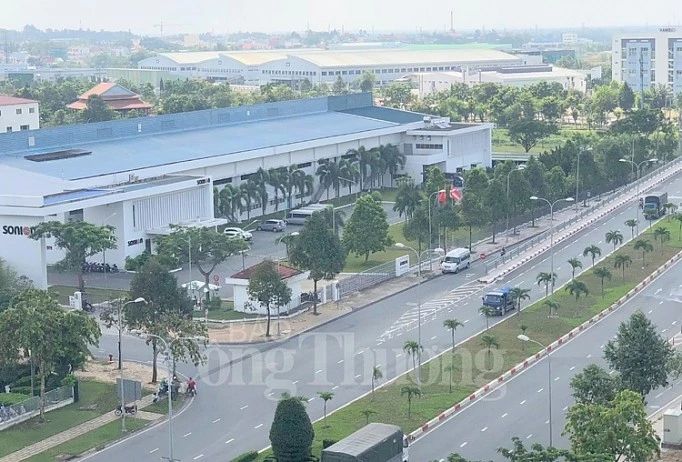【Vietnam system】Vietnam land transfer law and regulations
The constitution of Vietnam stipulates that land in Vietnam belongs to the people and is represented by the state as the owner of the land, which exercises control over the land on behalf of the people.
Although the law technically denies private land ownership, legal land ownership can be obtained through the land use right (LUR) in essence. The government of Viet nam may assign or lease LUR to individuals, families and organizations that are permitted to use the land for limited or unrestricted periods.
The legal framework of LUR administration in Viet nam includes the basic laws, several supplementary laws, and other supplementary regulations. The basic laws include the land law, which was revised in 2014 to address several important reforms related to foreign-funded enterprises. Supplementary laws include the civil code, which clarifies areas not covered by the main provisions, and other supplementary laws relating to foreign investment.
The Ownership of LUR and Other Assets Attached to the Land shall be proved by "the Certificate of Land Use Right, Ownership of House and Other Assets Attached to Land" (LURC). LURC provides basic information on the land use, including the period and purpose of the land use, as well as records of any land ancillary assets if any.
At the national level, the ministry of natural resources and environmental protection (the state administrative body responsible for land management) and the ministry of construction (the state administrative body responsible for construction activities) may exercise the power; At the local level, people's committees may exercise this power, supported by administrative bodies such as the ministry of natural resources and environmental protection and the ministry of construction.

Ownership of land and land ancillary assets by foreign investors
Foreign investors who wish to become "land users" and accept distribution, lease or recognition of LUR by the Vietnamese government must establish "foreign enterprises" in Vietnam to have the opportunity to be granted ownership and quasi-ownership interest in land and land-based assets. A foreign-funded enterprise may be the principal shareholder of a wholly owned subsidiary, joint venture or Vietnamese company. The type of foreign-funded enterprise depends on the type of investment the investor is considering.
Foreign companies may obtain LUR in the following ways:
Land is allocated by the Vietnamese government for investment purposes
Land is leased by the Vietnamese government
Land leased by designated lessor (including local or foreign enterprise developers chartered for sublease of infrastructure development)
Transfer of LUR through local Vietnamese partners to the joint venture
LUR acquired by purchase of complete real estate projects or projects covering LUR
(1) Land is allocated by the Vietnamese government for investment purposes
Under current rules, the Vietnamese government provides only limited land allocations to foreign-owned enterprises.
A foreign-capital enterprise may, by virtue of its investment registration certificate issued after examination and approval, acquire land for building, selling or renting residential buildings through the distribution system; In this case, the maximum period of land distribution validity is 50 years, and is subject to the period of the corresponding investment project. The foreign-capital enterprise shall have the right to transfer, lease, donate and mortgage the land obtained from the distribution, and shall have the right to invest the right to use the land as capital in the joint venture company.
(2) Land is leased by the Vietnamese government
Both local and foreign companies can lease land from the Vietnamese government for agricultural, manufacturing and commercial purposes, including infrastructure construction, manufacturing plants, hotels and resorts, mining and rental housing. The maximum term of land lease is 50 years (70 years for projects of national importance) and is subject to the period of relevant investment projects. The tenant may apply for an extension of the tenancy within the term of the tenancy but the extension will continue to be subject to the original ceiling.
The tenant must pay the rent on the land. The rent is payable on an annual or lump sum basis from the first day of tenancy.
Lump-sum payments give LUR tenants greater flexibility. A lump-sum tenant has the right to transfer, lease, donate and mortgage LUR and may invest LUR as capital in the joint venture. By contrast, tenants who pay annual rents are not entitled to the same rights, and their potential rights are limited to the transfer, lease, mortgage and contribution of land and affiliated assets, but not to LUR.
(3) The designated lessor leases the land
Foreign-funded enterprises may also sublease certain development zones, such as industrial zones, export processing zones or high-tech zones, to local or foreign-funded enterprise developers authorized by the government. As mentioned in the preceding paragraph, the subtenant may pay the land rent to the developer who chooses to pay the land rent in a lump sum or annual payment.
If the developer chooses to pay the annual rent, the subtenant shall pay the same amount (annual). The subtenant may also be required to pay other costs under the lease, including management fees or infrastructure costs. The subtenant has the right to obtain LURC.
(4) Be accepted by way of contribution
A Vietnamese entity incorporated and registered under the Vietnamese enterprise law, which allows it to make investment in the form of LUR value under the following circumstances:
The entity has acquired land under the land distribution system and paid rent in full
The entity has acquired land (including LUR transferred by other organizations) under the land lease system and has paid in full for the full term of the lease
Once the contribution is made, the joint venture shall enjoy the same rights as the users of the land directly distributed or leased by the government and shall pay the land use fee or rent in full. The joint venture may transfer, lease, donate, mortgage or invest LUR as capital in other joint ventures.
(5)Acquired through the purchase of real estate projects or investments involving LUR
Foreign enterprises that acquire LUR through the purchase of real estate projects or investment projects containing LUR shall enjoy the same rights as individuals or organizations that transfer LUR. The form of land use for the LUR must be "the state leases the land and pays the rent for the full term in one lump sum".
Expats buy homes
The housing law 2014, which took effect on July 1, 2015, eases the restrictions on foreigners' housing purchases in Vietnam.
Foreigners admitted to Vietnam can now buy real estate in Vietnam.
Foreigners should note that the upper limit of the relevant laws and regulations in Vietnam is as follows:
30% of the total units in a single apartment block
10% of the total number of single-family homes in a single residential area
250 houses in the ward district
In general, foreign owners have the same rights as those who receive land directly from the Vietnamese government, including the right to sell, mortgage, rent, donate or use the property as capital. Unless a foreigner is married to a Vietnamese citizen, the term of ownership is usually capped at 50 years.
Three months before the expiration of the ownership period, foreign homeowners can apply for the renewal of ownership, which is limited to 50 years. Foreign owners can also sell or bequeath their properties. If the foreign owners do not take the above measures before the expiration of ownership, the property will be converted to state property.


